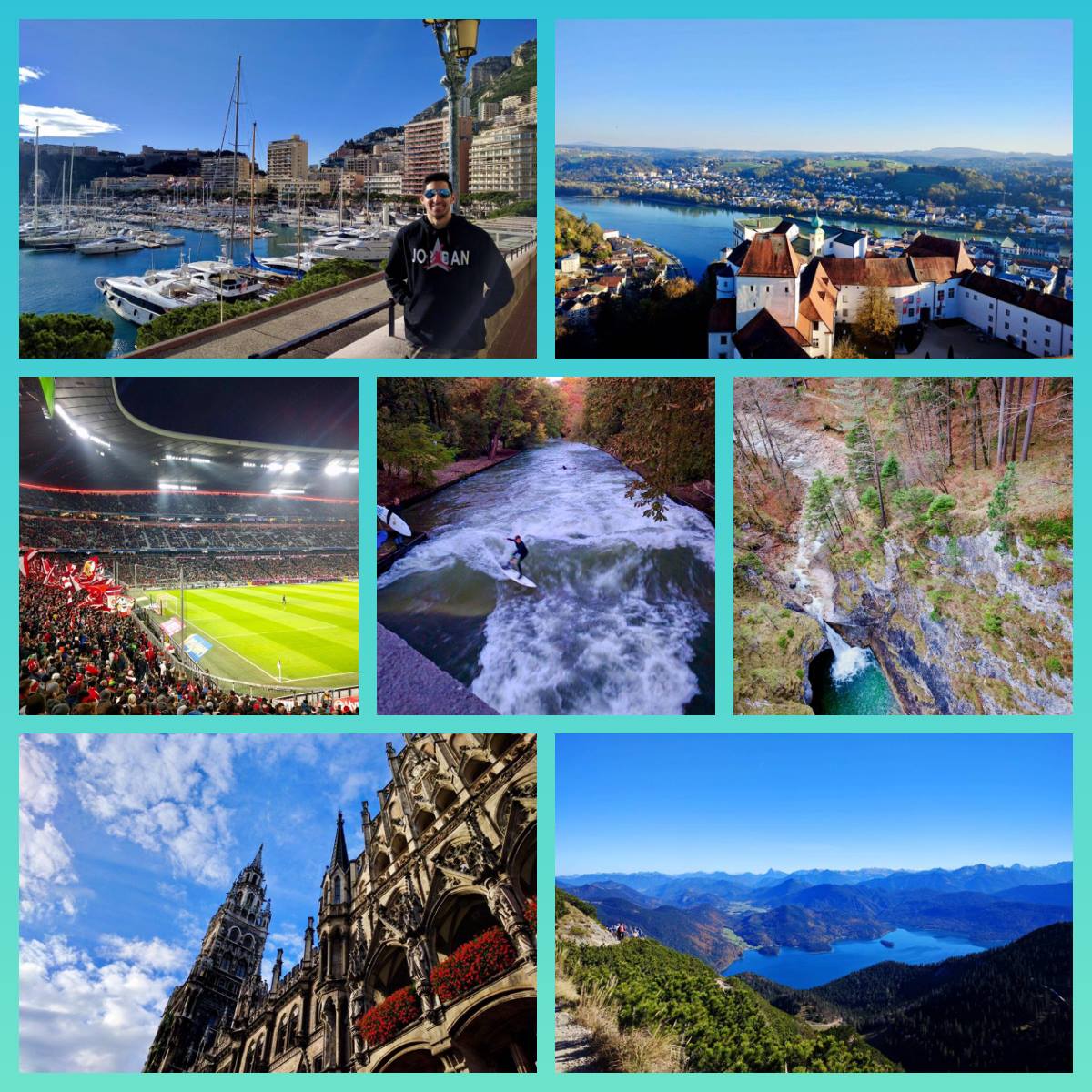Upon receiving the delightful news of my acceptance to the Technical University of Munich (TUM) in Germany to study abroad in their Winter Semester (October 2017 – March 2018), my focus immediately shifted to preparing and researching my destination. My initial knowledge and awareness of German Universities was sound at best, but the challenge of immersing myself in an educational environment of excellence (and thriving) was a personal goal I wanted to achieve. The primary similarity between ANU and TUM is the research-intensive focus, however the main focus of this article is outlining the stark differences between the two.
Currently studying a Bachelor of Engineering (with a backbone focus in Systems Engineering), I was cognisant of the contrasting curriculums between the ANU and TUM. Whilst it was my intention to study as many ‘course credited equivalent’ subjects as possible (all equating to 24 ANU Units or approximately 30 ECTS credits), part of my preparation focused on the ‘course structure’ of each subject (namely assessment deliverables). Furthermore, I wanted to use this opportunity to explore related subject areas which were beyond the scope of my major/degree.
Courses can be taken up across multiple colleges however a firm rule was that at least 50% of all ECTS credits must be registered within your primary college/department. More specifically, two courses I took up and thoroughly enjoyed were “Radar Signals and “Systems and Satellite Navigation”. The broader scope of subjects and research conducted in Communications Engineering (in this instance) has encouraged me to research a possible career path in this sector. It will amaze you just how diverse TUM’s subject lists are. These are just two subjects of dozens on offer (within the Electrical and Computer Engineering department alone).
In terms of course assessment, I was quite surprised to find that across all TUM departments, exams were the primary assessment item (weighted from 75-100% of a course grade) with little emphasis placed on assignments. In all ANU Engineering subjects assessment weightings are evenly distributed for each deliverable.
Regarding classroom management, I was surprised to learn that TUM did not utilise a Lecture Recording System (a la Echo360). Common across the majority of Europe, (excepting a service and amenities semester fee, half of which pays for your student train ticket), there are no tuition fees whatsoever. Understandably, a lecture recording system would be deemed too expensive to maintain in this case.
ANU is (for the most part) a decentralised tertiary institution (namely in terms of College Administration and Management – I belong to the College of Engineering and Computer Science: CECS so the majority of my queries would be addressed here). This is the case at TUM, but unlike ANU, TUM’s entire university is divided into three main campuses (all of which are spread throughout the city of Munich). Whilst all my classes were fortunately on the same campus, I wanted to bring to your attention that the possibility of commuting (on Munich’s excellent subway/U-Bahn network) is highly likely if you have courses spanning multiple campuses. The advantage of the campuses being integrated into the city is the close proximity you are to everything (namely shops and public transport services).
Despite all my exchange courses being delivered from a primarily theoretical standpoint, I had acquired some new technical skills (both Engineering and Business Management related) which I aim to leverage on and apply throughout the rest of my degree. Excursions to companies (with strong ties to TUM) such as BMW, Bosch and smaller-sized start-ups all echoed the importance of the Entrepreneurship mindset. Taking note, guest lecture seminars from representatives of industry (some from these prestigious companies) also sparked a greater self-interest on the importance of cross-disciplinary study (acquiring skills from Field A to complement work in Field B) and being able to effectively collaborate with others to achieve common goals. What the ANU Systems Engineering program excels in is a strong focus on utilising the above principles, so from a learning perspective, I felt like I could relate a bit.
Munich has an eclectic mix of historical and modern architecture which is beautifully integrated all across the city. Whilst numerous travel guides can inform you (better than I) of detailed and interesting descriptions on ‘life outside the University sphere’, I will make a quick remark regarding Munich’s social life from a specific perspective.
Länderabend is a social event held on an occasion co basis aimed to unite both German and International students. More specifically, it provides a platform for International students (studying at TUM although other Munich-based Universities run similar events) to showcase their home culture, give students the opportunity to eat traditional food, socialise and acquire information of prospective exchange abroad opportunities as well.
The exchange journey has impacted me in more ways that I summarise into words. I will conclude by acknowledging that TUM is not only a world-class institution of learning and pioneer but also has allowed me to establish contacts and starting building my networks today.
Auf Wiedersehen TUM, Munich and Germany.
We acknowledge the Ngunnawal and Ngambri people, who are the Traditional Custodians of the land on which Woroni, Woroni Radio and Woroni TV are created, edited, published, printed and distributed. We pay our respects to Elders past and present. We acknowledge that the name Woroni was taken from the Wadi Wadi Nation without permission, and we are striving to do better for future reconciliation.
